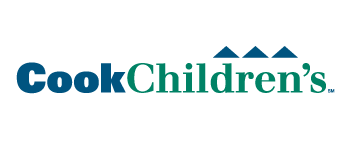Rasburicase Treatment for Chemotherapy or Malignancy-Induced Hyperuricemia in Asthma/Allergy Patients
| Status: | Completed |
|---|---|
| Conditions: | Cancer, Blood Cancer, Lymphoma, Leukemia |
| Therapuetic Areas: | Oncology |
| Healthy: | No |
| Age Range: | Any |
| Updated: | 4/26/2017 |
| Start Date: | March 2005 |
| End Date: | February 2010 |
A Study of Rasburicase Treatment for Chemotherapy of Malignancy-Induced Hyperuricemia in Patients With a History of Asthma Allergies
This is a multi-center trial for rasburicase in children at high risk of tumor lysis
syndrome who have a history of asthma/atopy. The main purpose of this study is to establish
the safety of this drug in patients with a history of asthma or severe allergies.
syndrome who have a history of asthma/atopy. The main purpose of this study is to establish
the safety of this drug in patients with a history of asthma or severe allergies.
Because they were excluded from most of the clinical trials of non-recombinant urate oxidase
and rasburicase, the safety of rasburicase in this population is not known, though
preliminary data indicates that the drug is safe. The primary objective of this study is to
estimate the proportion of grade 3 or 4 allergic reactions to rasburicase in patients with a
history of asthma or severe allergy (to antigens other than rasburicase or other urate
oxidases) treated with rasburicase for the prevention or treatment of malignancy or
chemotherapy-induced hyperuricemia. Patients at risk of tumor lysis syndrome with a history
of asthma/atopy will be treated with rasburicase according to standard practice and observed
for allergic reactions.
and rasburicase, the safety of rasburicase in this population is not known, though
preliminary data indicates that the drug is safe. The primary objective of this study is to
estimate the proportion of grade 3 or 4 allergic reactions to rasburicase in patients with a
history of asthma or severe allergy (to antigens other than rasburicase or other urate
oxidases) treated with rasburicase for the prevention or treatment of malignancy or
chemotherapy-induced hyperuricemia. Patients at risk of tumor lysis syndrome with a history
of asthma/atopy will be treated with rasburicase according to standard practice and observed
for allergic reactions.
Inclusion Criteria:
- A diagnosis of hematologic malignancy.
- Existing hyperuricemia or high risk of developing hyperuricemia of malignancy.
- The treating clinician plans to treat the patient with rasburicase. A patient is only
eligible for RASALL if the clinician has already decided to use rasburicase.
Rasburicase should not be given in order to make a patient eligible for this
non-therapeutic observational study.
- No prior exposure to rasburicase or other urate oxidase.
- A history of asthma or significant allergy.
Exclusion Criteria
- Wheezing or an active hypersensitivity reaction at entry.
- Hypersensitivity to Aspergillus proteins.
We found this trial at
11
sites
Columbia University Medical Center Situated on a 20-acre campus in Northern Manhattan and accounting for...
Click here to add this to my saved trials
Rhode Island Hospital Founded in 1863, Rhode Island Hospital in Providence, RI, is a private,...
Click here to add this to my saved trials
Dana-Farber Cancer Institute Since it’s founding in 1947, Dana-Farber has been committed to providing adults...
Click here to add this to my saved trials
Children's Hospital of Michigan Since 1886, the Children's Hospital of Michigan has been dedicated to...
Click here to add this to my saved trials
Cook Children's Medical Center Cook Children's Health Care System is a not-for-profit, nationally recognized pediatric...
Click here to add this to my saved trials
Click here to add this to my saved trials
Click here to add this to my saved trials
Click here to add this to my saved trials
Click here to add this to my saved trials
Click here to add this to my saved trials
Click here to add this to my saved trials




